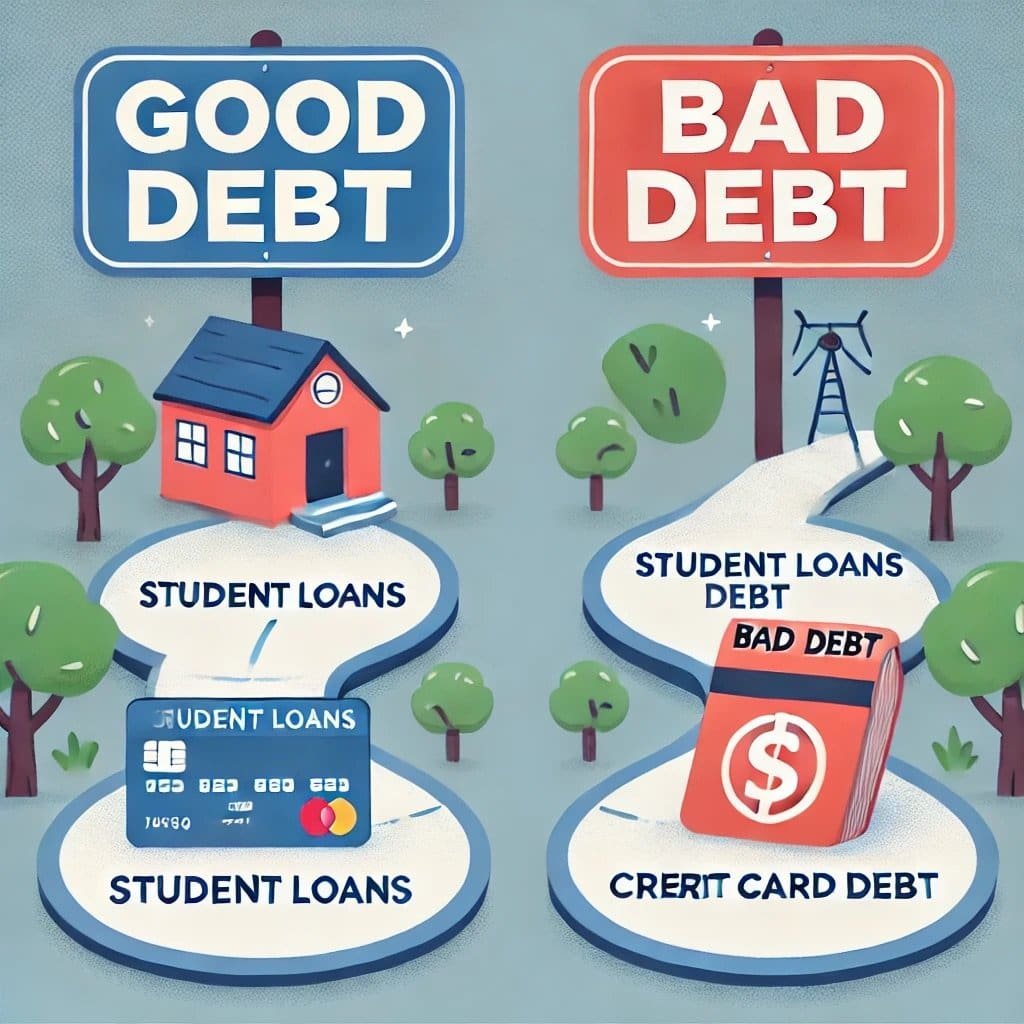Debt traps are financial pitfalls that can keep individuals stuck in a cycle of borrowing and repayment, often at high interest rates. These traps can lead to severe financial strain and make it challenging to achieve long-term financial goals. Here’s how to avoid the most common debt traps and stay on the path to financial freedom.
1. Avoid Payday Loans
Payday loans may seem like a quick fix for immediate cash needs, but they often come with extremely high interest rates—sometimes as high as 400%. These short-term loans can spiral out of control, forcing borrowers to take out more loans just to repay the original debt.
How to Avoid It:
• Emergency Fund: Build an emergency fund to cover unexpected expenses instead of relying on payday loans.
• Seek Alternatives: If you need quick cash, explore alternatives like borrowing from a family member or a personal loan from a credit union, which typically has much lower interest rates.
2. Beware of Credit Card Debt
Credit cards are a convenient way to manage expenses, but the interest rates on unpaid balances can add up quickly. If you only make the minimum payment each month, it can take years to pay off even a small balance, with much of your money going towards interest.
How to Avoid It:
• Pay Your Balance in Full: Avoid carrying a balance by paying off your credit card in full each month.
• Use Credit Wisely: Only charge what you can afford to pay off in your current budget. Treat your credit card as a payment tool, not a borrowing tool.
3. Watch Out for High-Interest Personal Loans
While personal loans can be useful for consolidating debt or covering large expenses, loans with high interest rates can end up costing you much more than you borrowed. Many people fall into the trap of taking out personal loans without considering the long-term cost of interest payments.
How to Avoid It:
• Shop Around for Lower Rates: Compare loan offers from different lenders to find the best interest rates and terms.
• Borrow Only What You Need: Don’t be tempted to borrow more than necessary, as this increases the overall cost of the loan.
4. Don’t Fall for ‘Buy Now, Pay Later’ Schemes
Buy now, pay later (BNPL) services have gained popularity, but they can be another form of debt trap. While splitting payments into installments can seem manageable, missing a payment can result in hefty fees and hurt your credit score.
How to Avoid It:
• Pay Upfront: Whenever possible, pay for items upfront to avoid the temptation of installment payments.
• Limit Usage: Reserve BNPL services for essential purchases, and make sure you can comfortably afford the payment plan.
5. Avoid Over-Extending Your Mortgage
Homeownership is often seen as a key financial goal, but taking on a mortgage that is too large for your budget can lead to financial stress. A larger mortgage may come with high monthly payments, making it difficult to save, invest, or handle emergencies.
How to Avoid It:
• Stick to a Budget: Use the 28/36 rule to guide your mortgage decision—your housing costs should not exceed 28% of your gross income, and your total debt payments should not exceed 36%.
• Consider Future Expenses: Account for potential future costs, such as maintenance, taxes, and rising interest rates when budgeting for a mortgage.
6. Consolidate Debts Wisely
Debt consolidation can be a helpful way to manage multiple debts, but it’s not always the best solution. If you consolidate high-interest debt into a lower-interest loan, but then continue accumulating new debt, you can find yourself in an even worse financial position.
How to Avoid It:
• Focus on Debt Repayment: Use debt consolidation as part of a broader debt repayment plan, and avoid taking on new debt until your existing balances are under control.
• Choose the Right Option: Not all debt consolidation options are equal. Look for loans with low interest rates and manageable repayment terms.
7. Avoid Co-Signing Loans
Co-signing a loan for a friend or family member may seem like a generous gesture, but it can become a debt trap if they fail to make payments. As a co-signer, you are legally responsible for the loan, which can impact your credit score and financial health.
How to Avoid It:
• Think Twice Before Co-Signing: Consider whether you can afford to take on the responsibility of the loan if the primary borrower defaults.
• Encourage Other Options: Suggest that the borrower look for other options, such as improving their credit score or seeking financial counseling.
Conclusion
Debt traps are easy to fall into but can be difficult to escape. By being aware of the risks associated with high-interest loans, credit cards, and other financial products, you can make smarter decisions about managing your money. Building good financial habits, such as budgeting, saving, and living within your means, can help you avoid these traps and achieve greater financial security.



One comment